
We use Google Cloud Translation Services. Google requires we provide the following disclaimer relating to use of this service:
This service may contain translations powered by Google. Google disclaims all warranties related to the translations, expressed or implied, including any warranties of accuracy, reliability, and any implied warranties of merchantability, fitness for a particular purpose, and noninfringement.

Highlights
- Harikala, who was illiterate, never wanted to know the alphabet, let alone be taught by her husband and sons. He has no regrets about not knowing the alphabet. However, there is a terrible regret - for not teaching her daughter. At that time, educating my daughter was not thought of much. They used to call daughters who go to other people's houses. Chasschuss also used to say - a caste that eats the fortune of others,' says Harikala.



His mother has always been the epitome of strength, energy and courage. And, the old black and white days when mother walked are like legend and folklore. The wider the world he has seen, the narrower his mother's surroundings.

Jiva Lamichhane, who has taken the world by storm many times, has many identities – entrepreneur, wanderer, writer and engineer. The mother who gave birth to Jeeva, who had many identities, was almost anonymous in memory, just as the rural Nepali women of that time were anonymous.
He did not have the freedom of his decision and choice. There was no right to independent self-determination freed from the constraints of tradition and the status quo. Therefore, Jeeva feels that her mother is the book of the dark and bright times of social change, whose personal experience, social life and psychology are the books for reading society.
The Padampur village of Chitwan, where Jiva was born, is the same. The only thing that has changed is the experience of the villagers and the narrow world in which they live. As the village itself is a witness – of the pain and struggle of the villagers, Jiva feels, her mother is also a witness – of the change of the village and the villagers.
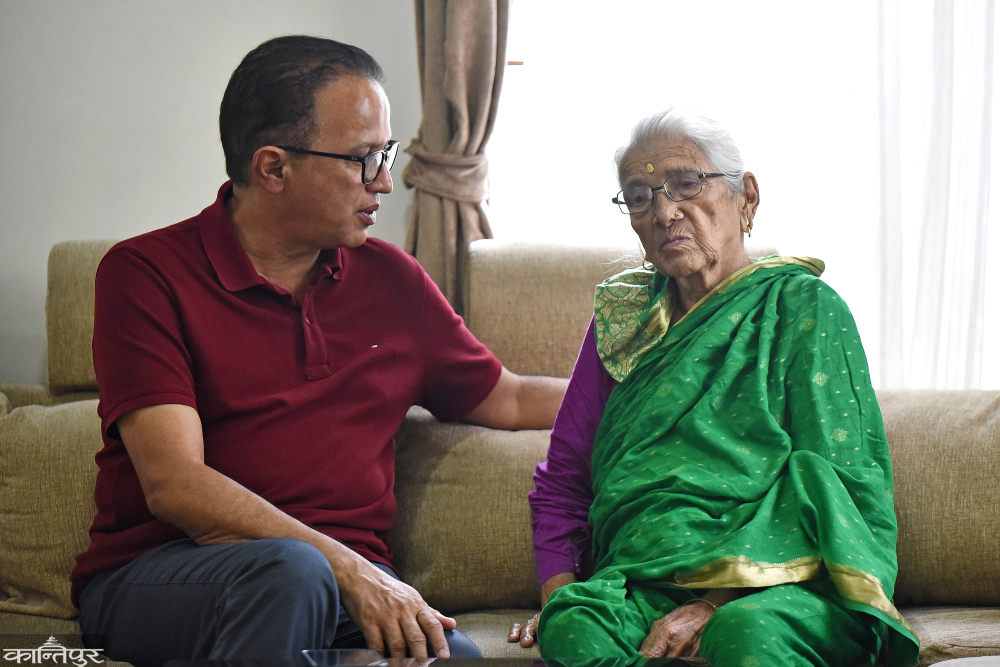 with mother Harikala Jeeva Lamichhane . Photos: Angad Dhakal/Kantipur
with mother Harikala Jeeva Lamichhane . Photos: Angad Dhakal/Kantipur
Readers are enthralled by the travel memoirs of former president of the Non-Resident Nepali Association (NRNA), Jiva Lamichhane. His 'Sarsarti Sansar', 'Desh Deshawar' or memoirs written in newspapers make the reader travel around the world, remember history, and introduce a completely new geography. Like - the mysterious world of the Bermuda Triangle or the talisman ice-geography of Antarctica or the war-torn Rwanda or Idi Amin's Uganda!
If there was anything that guided Jiva in the endless nights and lonely days, it was the warmth of a mother. He remembers his mother's pains and injuries while looking at the misty sky after the rain. He thinks that the memories that make life meaningful. There are innumerable colors of the time when mother walked here - sorrow, pain and suffering. He has many melodies, resounding from the strings of a sarangi strung on a lonely mountain. New chapters are being added in life. However, Jeeva's mother Harikala Lamichhane (90) clings to those first chapters of her childhood, the days that determined the life path she would follow.
***
Harikala was born in the year 1992 in Armla Harpak of Kaski and was called Seti by the villagers. The memories of the mountains, hills, forests and villages of almost a century ago are echoing nowadays. That path, that journey and those Kamala Anubhuti are the most important days of Harikala's life.
Harikala, the youngest child of father Balabhadra and mother Nandkali, had 2 brothers and 1 sister. Harikala was one year old when her father passed away. He does not know what his father's face was like! At what age did the father die? She doesn't even know that, but she guesses that she was not even 30 years old! Mother's age is not known at that time. Harikala was told by her mother that her father had gone to Phupu's house. On the way back, while trying to pick up Ainselu, he slipped and fell. When someone carried him home, he was in a state of exhaustion, and he passed away on the same day. Harikala's mother passed away in 053 at the legal age of 86 years.
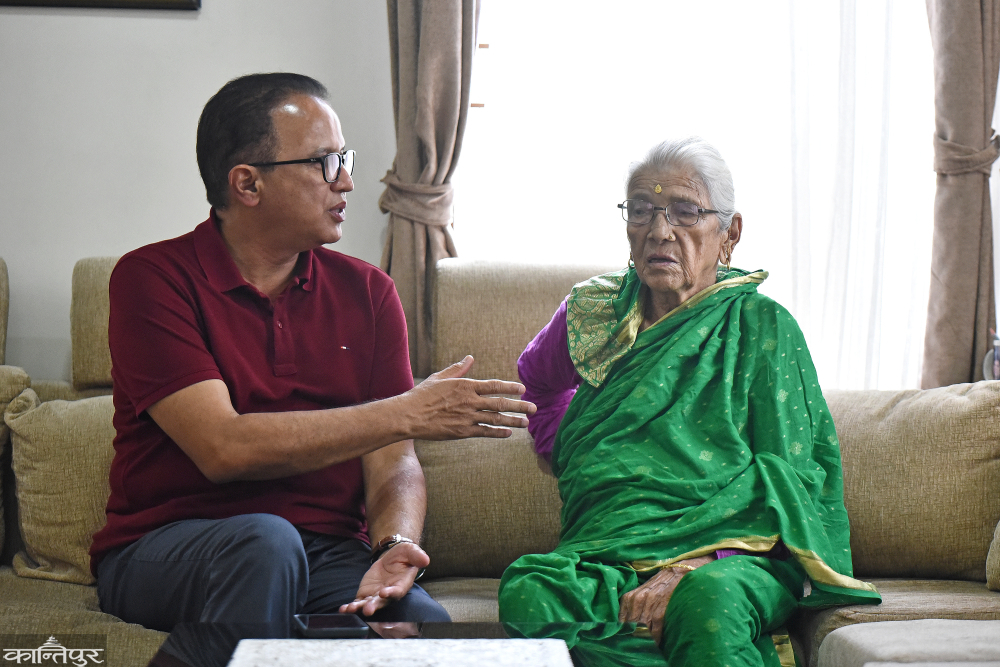 Harikala remembers her 11-year-old brother and mother living in a barn far away from home. There was a shed in the lake far away, near the forest. My brother used to live in a buffalo shed. The land had a total of 4 halls, including 2 halls. Mother was also sad because she had to be sent to Parma, shepherd, farmer. My mother used to go outside for work, I used to do the housework,' Harikala shouts from the window of memory.
Harikala remembers her 11-year-old brother and mother living in a barn far away from home. There was a shed in the lake far away, near the forest. My brother used to live in a buffalo shed. The land had a total of 4 halls, including 2 halls. Mother was also sad because she had to be sent to Parma, shepherd, farmer. My mother used to go outside for work, I used to do the housework,' Harikala shouts from the window of memory.
It was Harikala's daily routine to grind millet by raising the corn and sending the cow to her brother. There were sheep in the house, sometimes they jumped, sometimes they went down. His brother used to sell the same sheep and buy clothes for Harikala. And he used to say, 'Because of your greed, I sold the sheep and bought clothes.' There were 5/6 buffaloes in the barn. The master had to walk for 2/3 hours to go to the barn. His mother used to go to that barn to get grass. At that time, it was said to the mountain - Olan should not be sold. Mohi used to come to the house, not milk from the cowshed. A little of the ghee made in the barn came home, the rest was eaten by the shepherds.
***
Harikala got married at the age of 14. His elder sister got married at the age of eight. His family and home were with him. Harikala's husband Khemlal Lamichhane was 18 years old at that time. The economic condition of the family was weak, not even middle class. After the marriage, the husband left for India and Assam, in search of work - with a single stamp given to him by Harikala's mother. Villagers used to talk, leave you stranded now. However, later in 2014, when he came home on vacation, Khemlal took Harikala to Assam. Khemlal was a watchman. They lived in the tea plantations of Assam. Eldest daughter Dilu and son Jhalak were born there.
The youngest son of Harikala's 6 children passed away in 14 days. The eldest son also passed away a few years ago. She says, 'There is no greater sorrow than the death of the children she gave birth to.' The husband had gone to work. There was no one known in that foreign country. She gave birth to her son in a paikhana wrapped in bamboo and carried him home in a dhoti, bathed him and cut the umbilical cord. Now he thinks, he will know when he falls.
***
After returning to Nepal after earning some money from Assam, Khemlal-Harikala moved to Chitwan Padampur, Piparia. Arranged one bigha 12 kattha land, in 2018. The house originally built in Padampur was gutted by fire. There used to be houses - made of mud and mud. Rather than food, utensils, and clothes, Khemlal felt very sorry for burning the papers and books of his father's and grandfather's times. Every year there was a fire in one or the other house in the village.
was Jeeva's village – surrounded by the National Park on three sides and the Rapti River on one side, between the Padampur Tharu settlement of Raptipari. Wild animals used to cause trouble in the village. Crossing Rapti in Barkha was very difficult, life had to be put at risk. When the Rapti arrived in Barkha, the sick died prematurely because they could not take them to the market for treatment. Chitwan was a place of malaria. As it was said, if you point your finger at Chitwan, that finger will fall off. After the elimination of malaria in 2011, migration and immigration started in Chitwan. During the Rana period, if someone was to be punished, it was called 'Chitwan sent'. And, Jeeva's family moved to Chitwan in search of a place with water and farming. Tandi was very market oriented.
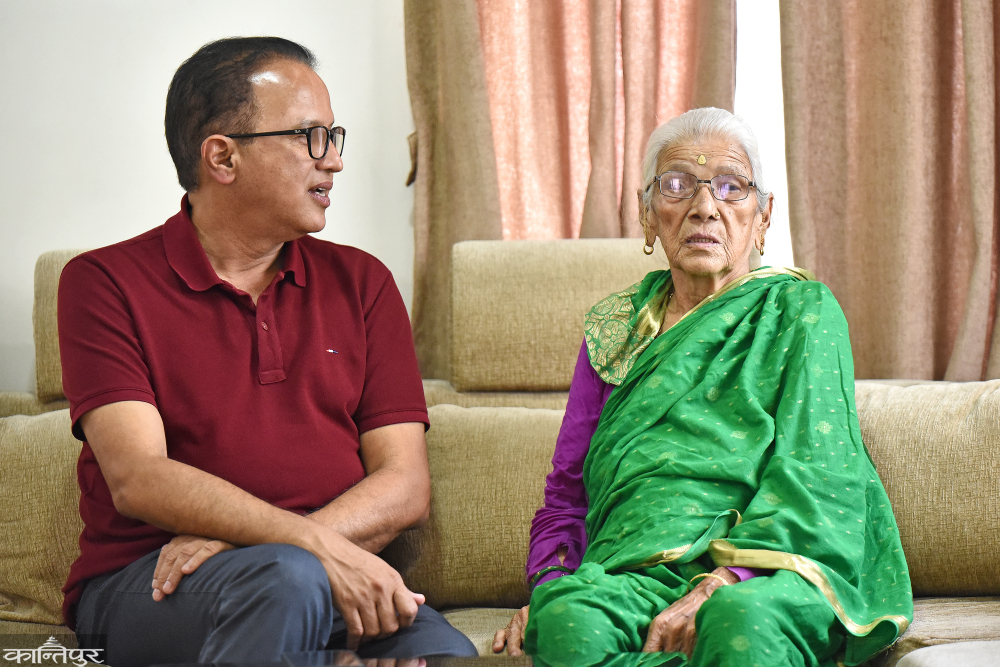 Jeeva was born in Padampur in the year 2021. He is my son. Jiva's house in Chitwan had a well and a stream. People from all over the village used to come to his house to fetch water. Khemlal used to feel that he had done a virtuous thing by giving water like that. It was not only hot, but also very sad in Chitwan. Harikala brought up her children by doing fairs, grass and firewood. Harikala had to go to Melapat every day. At 7 pm, the village, tired from the day's work, would go to sleep. After studying Padampur till 7th standard, Jeeva studied 8th, 9th and 10th in Nepal Secondary School in Tandi. Jiva's father bought a house in Tandi to educate his sons.
Jeeva was born in Padampur in the year 2021. He is my son. Jiva's house in Chitwan had a well and a stream. People from all over the village used to come to his house to fetch water. Khemlal used to feel that he had done a virtuous thing by giving water like that. It was not only hot, but also very sad in Chitwan. Harikala brought up her children by doing fairs, grass and firewood. Harikala had to go to Melapat every day. At 7 pm, the village, tired from the day's work, would go to sleep. After studying Padampur till 7th standard, Jeeva studied 8th, 9th and 10th in Nepal Secondary School in Tandi. Jiva's father bought a house in Tandi to educate his sons.
Jeeva was admitted to class one when he was 6 years old. Primary education was in 'Dharam Bhakari'. After the grain was grown in November, people from all over the village would bring the grain and collect it in the beggar's house. And, in May-June, when he needed grain, he used to take sapat. There used to be a court. There was a day of Rishi Panchami, the sisters of the village had gathered at Jiva's house to perform Panchami Puja. Children his own age followed their mothers home. Ziva did not want to go to school at all.
Ramita was at home, there was dancing. He went to school with his heart heavy with fear. Undeterred, he ran away, home. While hiding with father, his eyes fell on his son. Then Bale beat Jiva badly - will he run away? saying Jiva's mother cried profusely. After the beating did not stop, she separated, saying, 'Are you trying to kill it?' Even though he could not read, Khemlal kept a teacher at home to teach his children. A teacher who came from outside to teach in the village stayed in his house. Father's condition was - you must teach my sons.
***
The memory of that one day keeps covering the soul, making Ektamas 'nostalgic'. That day was – 20th September, 1986. The Rapti River was overflowing with overnight rain. Ziva was going to the Soviet Union the next day to study, on a scholarship. However, the flood of Rapti was increasing. The elders used to say - 'Rapti was never decorated like this. We have never seen such a big flood before.'' Along with the blurred rapti, Jiva's dream was also fading. After Rapti increased, all the villagers had to be confined in their villages. However, Jiva had to fly anyway - it was decided to fly abroad. Understanding his compulsion, Channu Mahato showed him the courage to cross the river. But, Jiva's mother was very scared, there was crying in the house. Crying, she gave tika, blessed her.
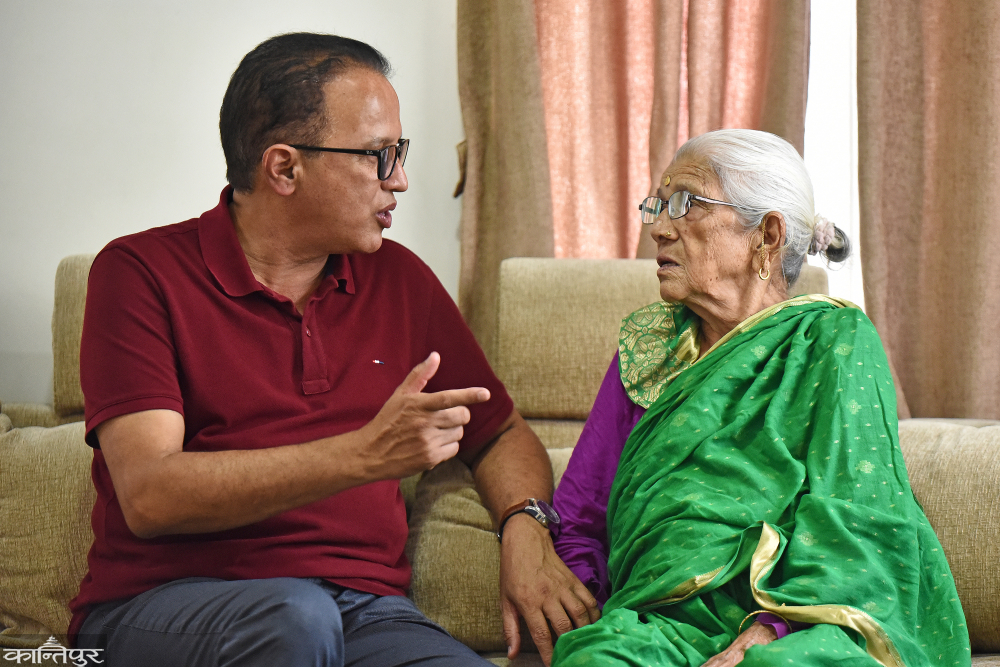 Ba did not allow his son to be sent alone to that rapti vel. He also boarded the boat with his son. When we reached the middle of the river, I started thinking, what am I trying to do with my life at stake like this? What if your stubborn decision turns into a big accident? I was forced to cross the flood risking not only myself but also the lives of others. If something happens, I won't even get to regret that I made a wrong decision. If nothing happens, it will be fine and my stubbornness will be brave,'' Jeeva wrote in the memoir-book of the struggle of migrant Nepali engineers, 'Aangan Chhod Jain'. However, nothing like that happened that day. And, the rapti stars and chords fly the soviet union.
Ba did not allow his son to be sent alone to that rapti vel. He also boarded the boat with his son. When we reached the middle of the river, I started thinking, what am I trying to do with my life at stake like this? What if your stubborn decision turns into a big accident? I was forced to cross the flood risking not only myself but also the lives of others. If something happens, I won't even get to regret that I made a wrong decision. If nothing happens, it will be fine and my stubbornness will be brave,'' Jeeva wrote in the memoir-book of the struggle of migrant Nepali engineers, 'Aangan Chhod Jain'. However, nothing like that happened that day. And, the rapti stars and chords fly the soviet union.
***
The illiterate Harikala never wanted to know letters, even if her husband and sons taught her. He has no regrets about not knowing the alphabet. However, there is a terrible regret - for not teaching her daughter at that time. At that time, teaching a daughter was not thought of much. Daughters were called caste who go to other's house. Chasschuss also used to say - a caste that eats the fortune of others,' says Harikala.
At that time, Harikala dropped her daughter from school. Khemlal had also enrolled his daughter in school saying that 'sons should study hard'. However, Harikala missed her daughter's education by thinking that she was a helper in housework. She says, 'If it happened now, why am I such a busy person?' When she meets her mother, the daughter keeps complaining about not being able to study even today. These days, seeing that daughters progress by reading, Harikala imagines - if she had read, my daughter would have stood on her own feet!
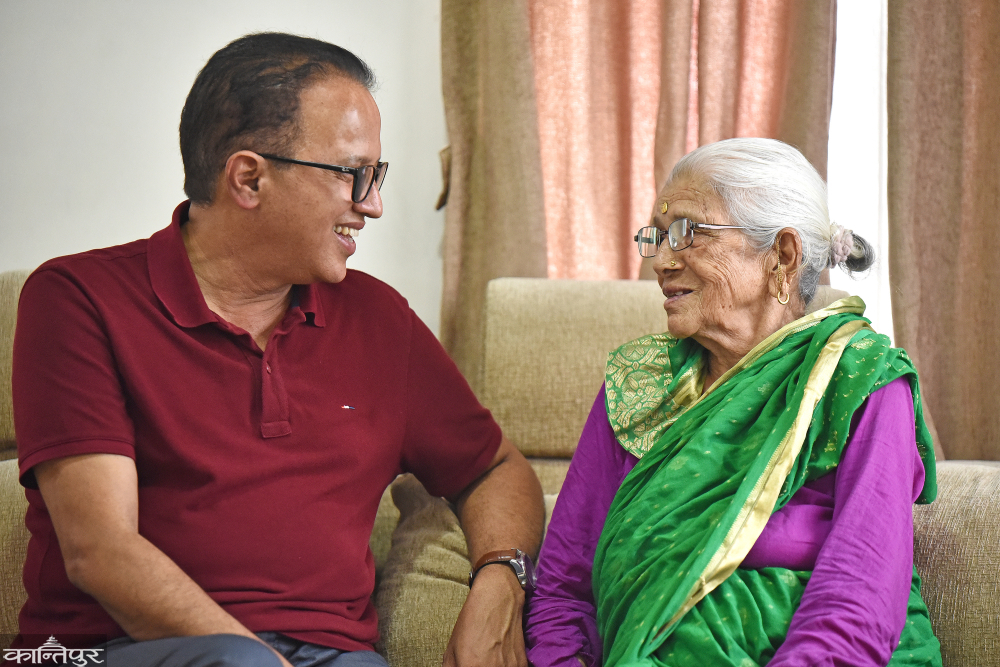 Two years ago, Harikala reached Harpak with her son Jiva. His eyes were fixed on his father's fallen body. She said, 'Hey! I used to come here to get water.' She said to Ziva, 'Is it because of lack of wisdom, lack of education or lack of money? Earlier people must have suffered because they did not have common sense. Otherwise, it would not be too expensive to install that pipe. When going up to the lake, after walking for 3 hours, we reached the cowshed, we cannot drink water.'
Two years ago, Harikala reached Harpak with her son Jiva. His eyes were fixed on his father's fallen body. She said, 'Hey! I used to come here to get water.' She said to Ziva, 'Is it because of lack of wisdom, lack of education or lack of money? Earlier people must have suffered because they did not have common sense. Otherwise, it would not be too expensive to install that pipe. When going up to the lake, after walking for 3 hours, we reached the cowshed, we cannot drink water.'
It took exactly one hour to bring water to Harpak. There was a pond under the house called Rohote. As the winters came early, they would get water, otherwise they had to wait. Early in the morning, one should wash the mud with clean water. It was said in the village - after crowing, don't wrap your mouth. So she used to go to Pandhera to get water at night. After the water dried up in Rohote, one had to go to the forest stream to get water. Bringing water through sorrow reaches in the morning, but not in the evening. Now there are streams in every house. Harikala thinks that happiness is written for the people of today.
***
Harikala feels like the story is alive when she remembers those days. She says, 'There was sadness in the big family. I didn't get a jump in life.'' Because he lived in India, Tharu people called Khemlal 'Lahure Baje', who was a cigarette smoker. Harikala tried very hard to get rid of that acid, but she escaped by saying, "It's a habit I've had since I was a child, and I don't even know how to fetch water."
Deprived of the opportunity to recognize Akshar, the change in her mother shocks Jeeva. Harikala says to the daughter-in-law - In today's age, menstruation is not necessary. And after the death of her son, she said to her daughter-in-law - nowadays it is customary to wear a red saree, you also wear it. Jeeva did not think that a mother can change herself according to society after what her mother's generation went through. However, the change in mother also taught Jiva - everyone has to change according to time.
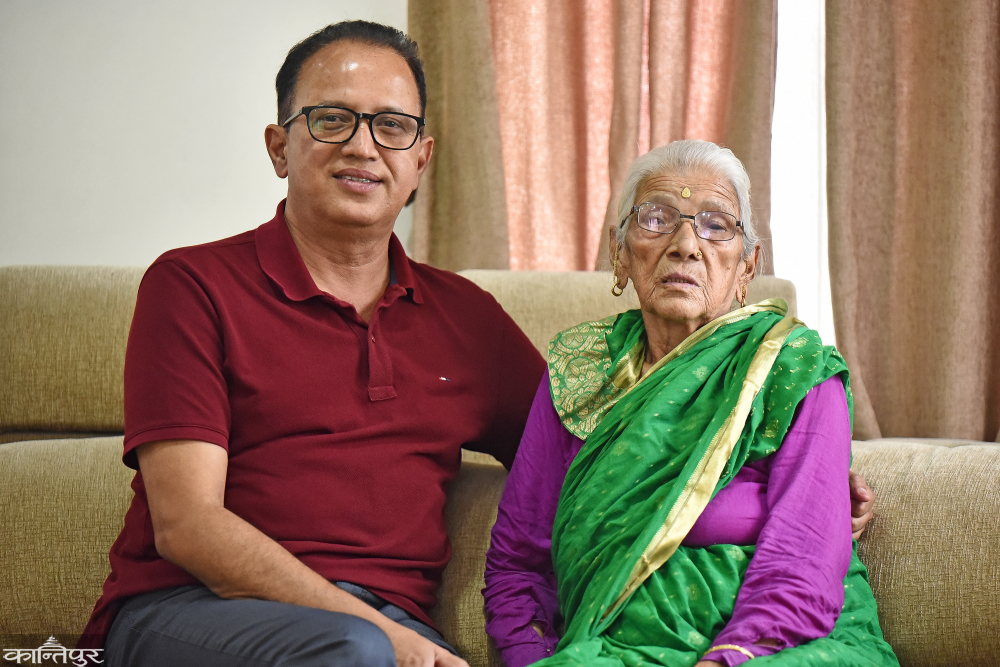 When Jiva traveled around the world, he also saw mothers who were happy, mothers who were in sorrow-disaster-conflict. However, the feelings, affection, affection and love of all mothers are the same. Jeeva feels that mother is another form of love, compassion and tolerance. They say, 'That's why it is said that God created mother because he could not reach everywhere.' She keeps saying, 'I can't sleep'. She takes various medicines. She mostly lives in Chitwan with her son, now she is in Kathmandu. He does not like to stay in Kathmandu. Although the body is in Kathmandu, the mind is in Chitwan. She is happy saying, 'Forty-three grandchildren, great-grandchildren and great-great-grandchildren have been sheltered.
When Jiva traveled around the world, he also saw mothers who were happy, mothers who were in sorrow-disaster-conflict. However, the feelings, affection, affection and love of all mothers are the same. Jeeva feels that mother is another form of love, compassion and tolerance. They say, 'That's why it is said that God created mother because he could not reach everywhere.' She keeps saying, 'I can't sleep'. She takes various medicines. She mostly lives in Chitwan with her son, now she is in Kathmandu. He does not like to stay in Kathmandu. Although the body is in Kathmandu, the mind is in Chitwan. She is happy saying, 'Forty-three grandchildren, great-grandchildren and great-great-grandchildren have been sheltered.
Harikala's husband Khemlal passed away in 2071. After the death of her husband, she stopped wearing red clothes, churapote, red tika. She also wears a small gold tikuli on her forehead. When she is at home and sober, she does not forget to put water in the bucket for her husband, thinking that 'water should be given to the dead, fathers who do not have water are thirsty.' Harclala thinks how many shoes, "I am very happy," I am happy. '
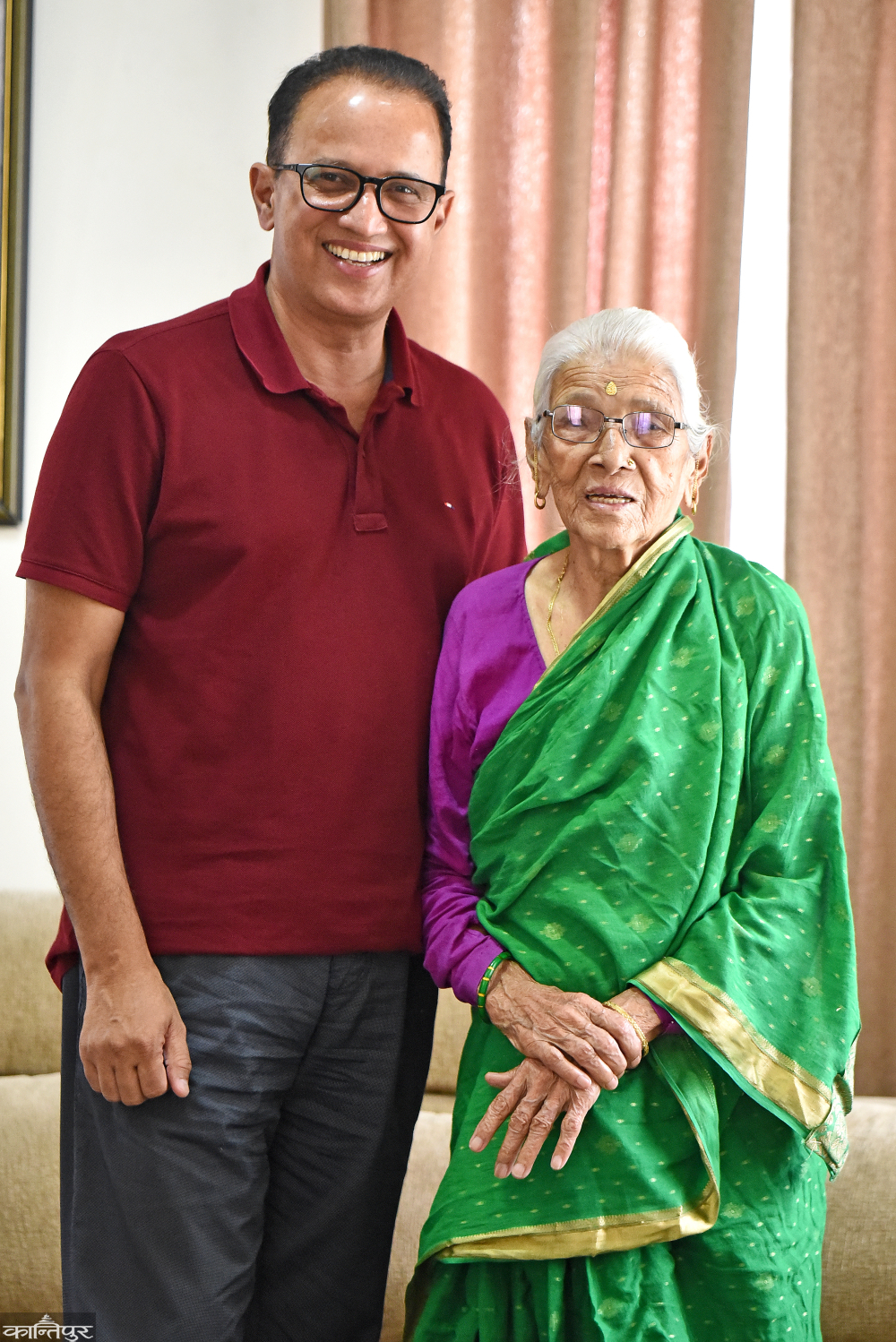
 प्रकाशित : श्रावण ८, २०८१ ०९:५२
प्रकाशित : श्रावण ८, २०८१ ०९:५२

 २२.१२°C काठमाडौं
२२.१२°C काठमाडौं











